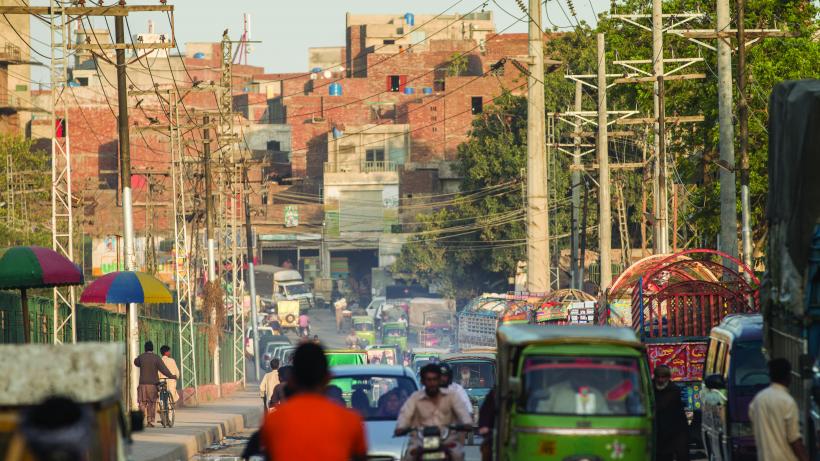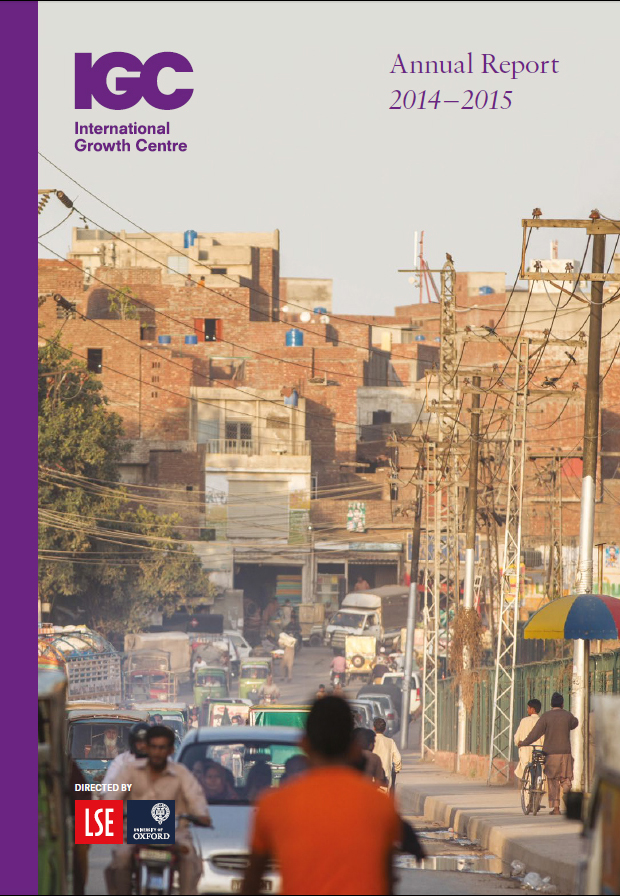
Annual Report 2014-2015
-
IGC_Annual_Report_08.06.15_WEB_SPREADS.pdf
PDF document • 986.42 KB
The IGC promotes sustainable growth in developing countries by providing demand-led policy advice based on frontier research. The IGC directs a global network of world-leading researchers and in-country teams in Africa and South Asia and works closely with partner governments to generate high quality research and policy advice on key growth challenges.
In 2015, the IGC published its first public facing Annual Report. This document highlights the impressive success of the IGC over the past year - with over 60 research projects influencing policymaking in our 14 partner countries. The report opens with statements by our Executive Director, Jonathan Leape, and our Directors, Robin Burgess and Paul Collier. The report goes on to highlight six projects which have had the highest levels of impact in the past year:
- Increasing tax compliance in Bangladesh through social recognition
- Developing the growth strategy of the Punjab province, Pakistan
- Gender empowerment and productivity in the garment sector
- Assessing the economic impacts of Ebola in Liberia and Sierra Leone
- The role of government in sustaining mobility and accessibility in Rwanda
- How the natural gas boom could expand industrial development in Tanzania
The impressive growth of the IGC over the past six years is then detailed, showing a significant increase in the number of projects we have commissioned, the number of researchers who work with us, the number of events we hold, and our engagement on the web and Twitter.
The report concludes with a look at the highlights of the IGC over the past year, including our award winning videos on Pakistan and Zambia, our open letter to the UN Secretary General and the publication of our new Growth Briefs.
In addition to facilitating this impact, the IGC commissioned 143 projects this year, including a comparative analysis of the coffee value chains in Rwanda, Uganda and Ethiopia, which aims to improve the design of industrial policies. Another, in Zambia is analysing the impact of urban density on the spread of mobile money solutions, while a project in Kenya and Tanzania is examining how affordable solar power affects household outcomes. In all these projects, researchers are working closely with policymakers to generate new ideas to tackle key growth challenges, drive up living standards, and lift people out of poverty.


